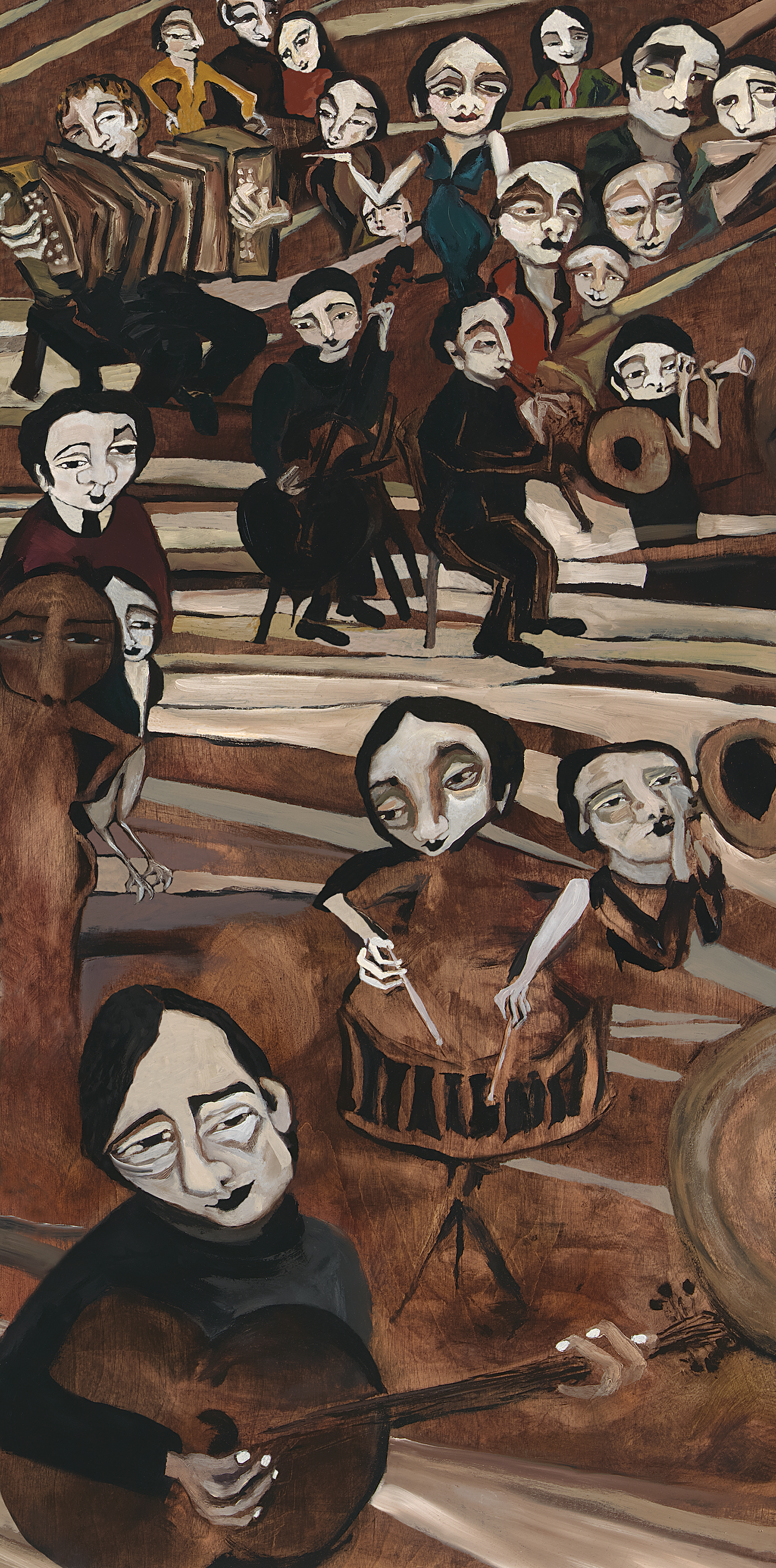It's no secret that I am a fan of JZ Microphones. In the past, they've offered exclusively large diaphragm microphones, but with the BT202 they have entered the small diaphragm condenser [SDC] market with an offering that has an interesting look and sound. I cannot decide if they resemble something from the distant Soviet past, or a vision of a weird Dr. Seuss future. Regardless, they are eye-catching, beautifully machined, and have a nice heft.
The phantom-powered Class A BT202 mics are sold as a stereo pair, and I put them to work immediately in the places that one would typically use SDC mics, such as acoustic guitar, percussion, and drum overheads. I have owned several SDC mics over the years, but I stopped looking once I got my hands on a pair of Schoeps CMC 6s. They are the best microphone of this type that I've heard, so I was curious to hear a side-by-side comparison between the BT202 and my beloved Schoeps.
First off, the BT202 pair capture a sonic space of their own. They were notably a little darker sounding than I am used to hearing from an SDC, but that is not to say that I wanted to EQ a bunch of top end into the recorded sound. I felt they nestled nicely into the fabric of the music without any over-hyped high end. The stated frequency response shows the BT202 almost totally flat from 20 Hz to 20 kHz, with a slight rise from around 6 kHz to 12 kHz. I was surprised when I saw this graph, as this was not noticeable to me in use. Again, I thought they presented slightly darker than most SDCs, and in a way I found useful. The transient response was excellent and performed as I'd expect from a high-end SDC on sources like drum overheads, tambourine, acoustic guitar, and even snare drum. Acoustic instrument capture is going to be the obvious choice for the BT202, and everything I threw at it from this realm sounded fantastic.
Buy these if you want a good pair of SDC mics to fill this sometimes very specific role. They will perform well with a bit of personality to boot. But what else is this mic good for? I love trying microphones in situations one may not think appropriate. I put a BT202 in front of a VOX AC30 guitar amp – at a low to moderate volume with a bit of breakup – playing my trusty Gibson ES-347. It captured everything I love about that amp and guitar setup with no harshness or unwanted bite. Once again, I found no need for any EQ to make it sit in the track. Sure, I use a Shure SM57 on a guitar cab just as much as the next person, but more and more I have been using condenser mics on amps and loving the highly detailed picture they can capture. One of my favorite mics for this is the JZ BH1 Black Hole [Tape Op #71]. The BT202 mic will get used like this all the time, either on its own or paired with a favorite dynamic mic.
When using different preamps, the BT202s had varying characteristics. Even with the cleanest preamps I have in the studio – those on my Crane Song Spider – I found them to be smooth and true sounding, without any of the sizzle or fizziness I've encountered on budget mics. Can I hear the difference between the BT202 and my Schoeps CMC6? Of course, but the sound was simply that; just different. In the end, both sounded fantastic.
Another place I sometimes employ SDCs is on vocals, especially for background parts. Sure, the singer may not feel as "cool" as they do with a big tube mic flipped upside down on a massive boom stand (and that's important at times), but there are occasions when I need the backing vocals to occupy a different sonic space. One way to do that is with a "non-traditional" mic choice or preamp. I enjoyed the clear but "edges melt into the track" quality of the BT202 on vocals. Paired with my Chandler Microphone Cassette preamp [Tape Op #117], I did several layers and harmonies with the vocalist about three feet off the mic to let some of the high-ceilinged room come into play. With minimal (and typical) compression, the tracks sounded perfect. I would certainly be happy to use these mics again for this application.
JZ mics still come in a cardboard box, but the box for the BT202s is quite a bit nicer looking than some of their previous offerings. Since these mics will be on stands all the time, I guess there's no need to store them in a fancy wooden case! Also accompanying the microphones are two mic clips that will work on a stereo bar or on individual mic stands.
Once again, JZ has brought a mic into the marketplace that has its own voice. It will certainly be a workhorse in my studio. Even if you already own a great pair of SDC mics, you may want to consider adding a BT202 pair to your locker, as they are versatile and a unique voice in the SDC category.




_disp_horizontal_bw.jpg)